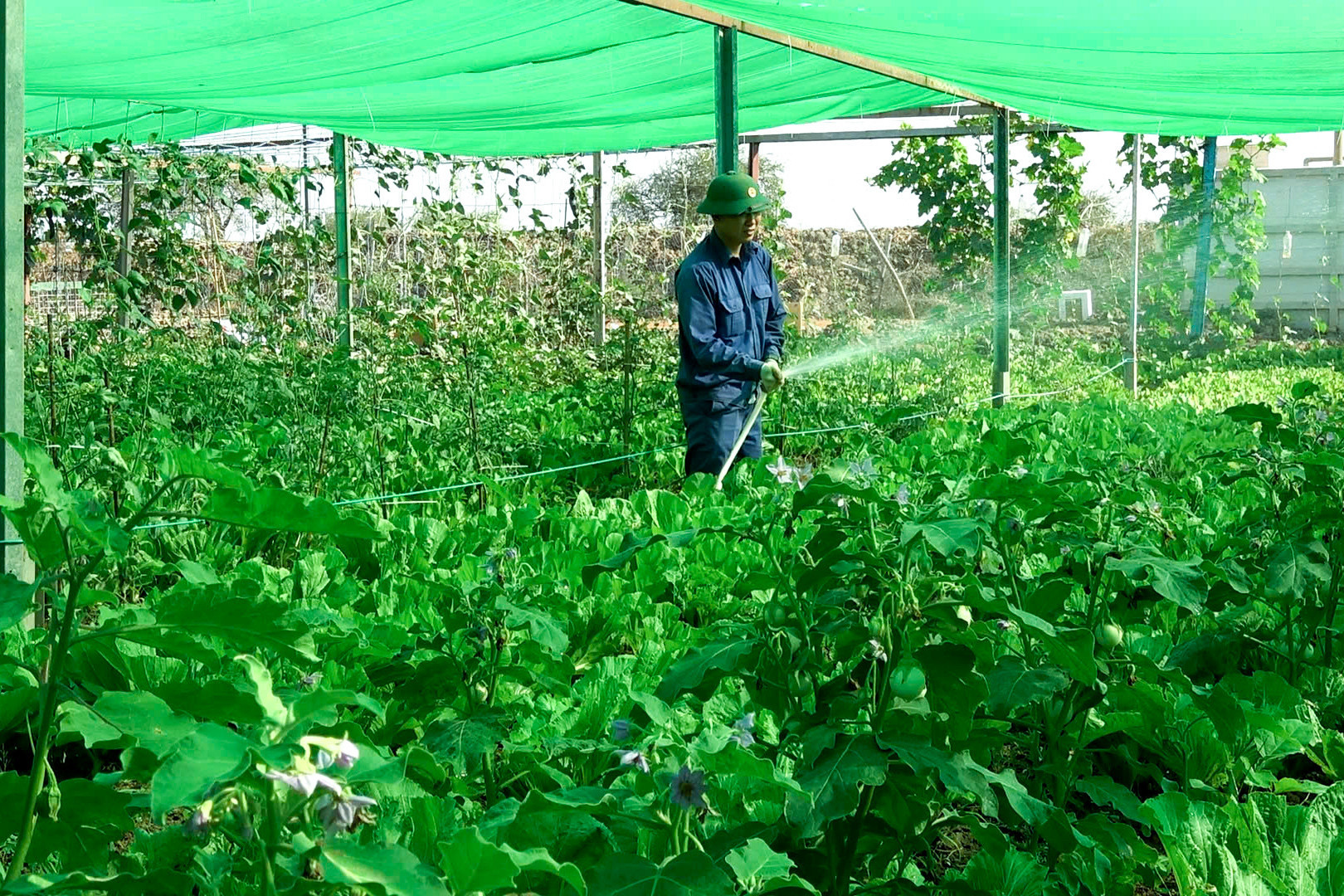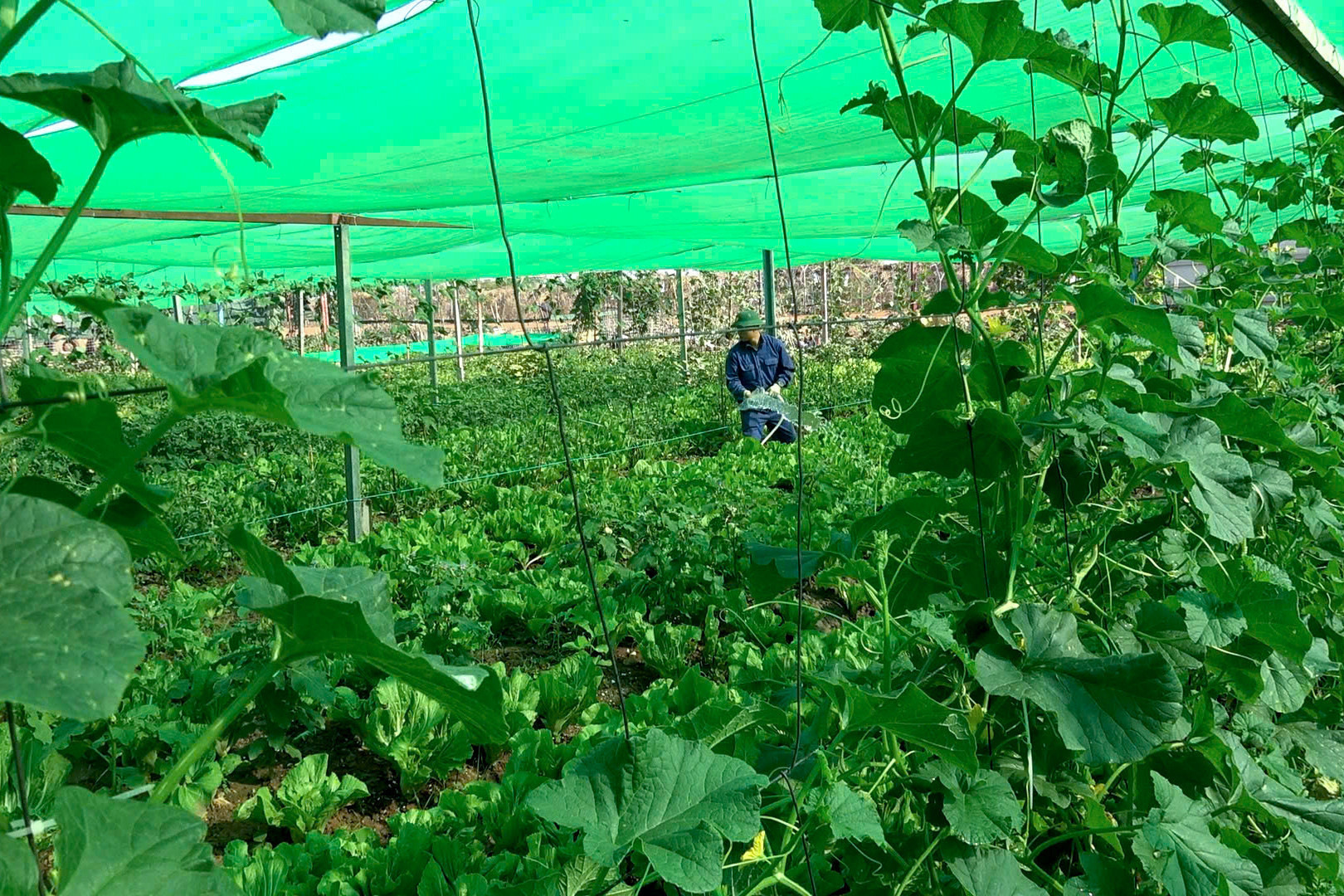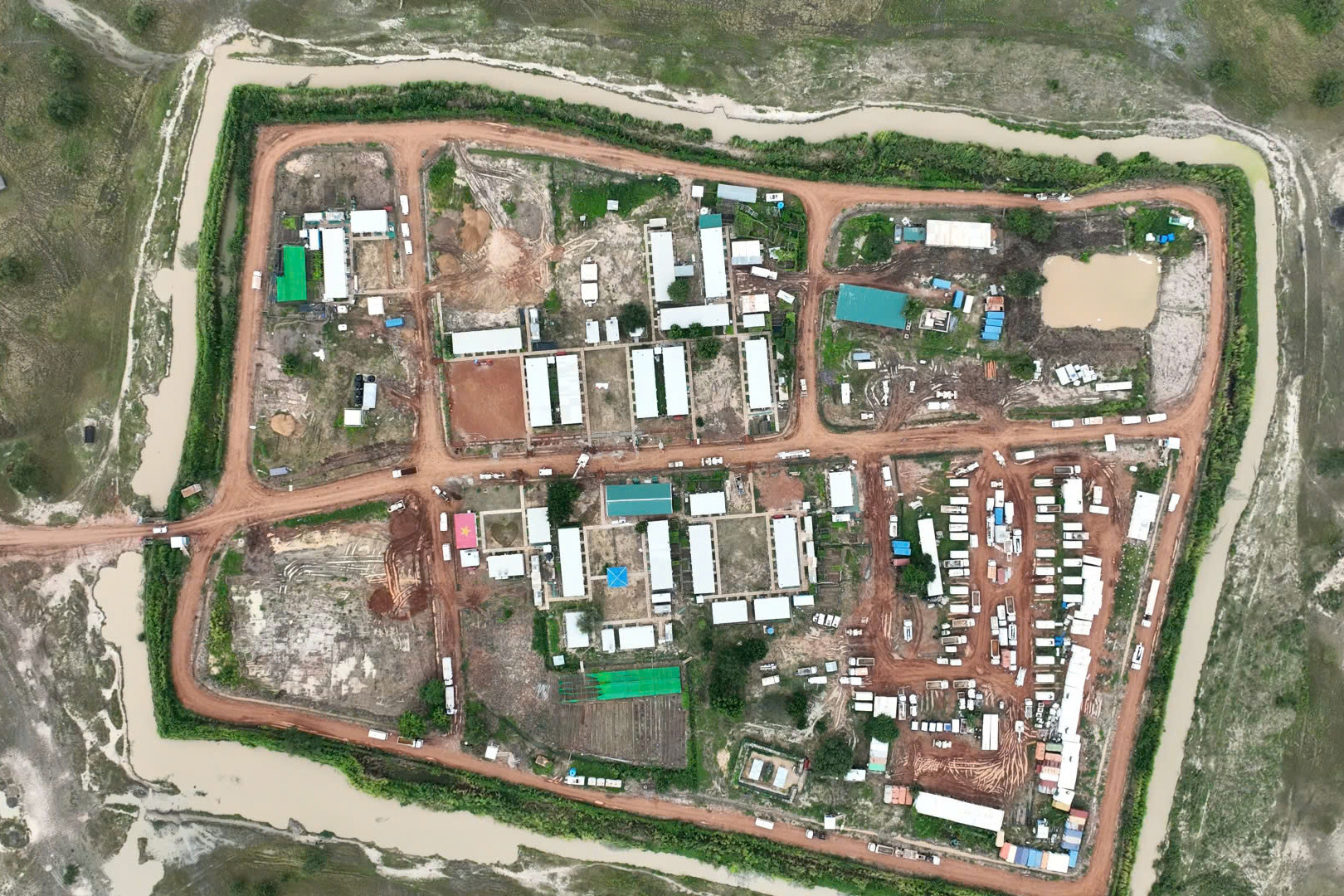Transforming the impossible into reality
Abyei, a contested region between Sudan and South Sudan, is known for its harsh climate. During the dry season, temperatures soar to nearly 40°C, with scorching sunlight, low humidity, and nutrient-poor soil.
Upon arriving in Abyei for their peacekeeping mission, Vietnam’s Engineering Unit No. 3 identified food production as a top priority - not only to enhance their daily meals but also to improve morale and maintain their health.
However, the region's harsh weather and barren land made farming extremely difficult. Refusing to be defeated by the conditions, the Vietnamese soldiers applied innovative techniques to adapt and cultivate crops.
They brought seeds from Vietnam, carefully selecting drought-resistant plants such as water spinach, Malabar spinach, mustard greens, tomatoes, pumpkins, and gourds.
They also designed a systematic farming area, utilizing treated wastewater and implementing advanced agricultural methods to boost crop yields.
 |
 |
 |
 |
To improve soil fertility, they collected and composted organic waste from their kitchen and livestock manure from the local area. Instead of using chemical pesticides, they created natural pest repellents from crushed chili, garlic, onions, and citrus peels.
Captain Tran Ngoc Son, who was directly responsible for the farming project, shared that the soil in Abyei consists mainly of clay mud with poor nutrients. During the rainy season, it hardens around plant roots, and during the dry season, it becomes extremely compact, slowing plant growth.
To address this, the team built protective covers to shield crops from extreme weather. They also chopped soft-stemmed plants to compost and mix with the soil, increasing its porosity and nutrient content.
With dry-season vegetation dying off, pests such as fruit flies, stink bugs, and beetles had no alternative habitats, attacking fruit-bearing plants as soon as they began pollination. In response, soldiers not only sprayed natural pesticides but also set up nets and used plastic bags to protect young fruits.
To conserve water, the unit adopted intercropping and crop rotation techniques, allowing short-term and long-term crops to grow together, maximizing land use while protecting plants from disease.
A model for sustainable farming

The fresh vegetables harvested from the gardens have significantly improved meal quality, reducing reliance on imported food. Beyond nutrition, farming has strengthened discipline, teamwork, and resilience among soldiers, providing them with additional motivation to fulfill their international peacekeeping duties.
Thanks to their persistence and creativity, the farming project at Highway Base has yielded impressive results, gradually becoming a model for sustainable agriculture in Abyei. The vibrant green patches of vegetables now stand as an oasis in a region once thought unsuitable for farming.
The story of these Vietnamese military engineers is a powerful testament to their perseverance, adaptability, and ingenuity. Not only have they successfully carried out their peacekeeping mission, but they have also brought life and greenery to a seemingly barren land. Their work embodies the spirit of Vietnamese soldiers, who remain steadfast in overcoming challenges, no matter where they are deployed.
Abyei remains a disputed territory between Sudan and South Sudan. In 2011, the two countries signed an agreement to withdraw military forces from the demilitarized zone and establish a joint mechanism to resolve the dispute. However, progress has been slow.
Vietnam’s Engineering Unit No. 3 consists of 184 personnel, serving in the United Nations Interim Security Force for Abyei (UNISFA) peacekeeping mission.
Tran Thuong